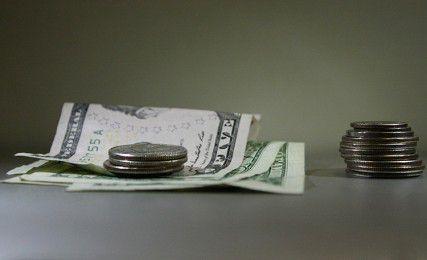
After several advocacy groups led rallies to increase the minimum wage, Mass. Sen. President Therese Murray will propose a bill to Senate Tuesday to increase the rate in Massachusetts from $8 to $11 by 2016 in order to combat the rising cost of living.
Anthony Colletti, communications director for Mass. Sen. Dan Wolf, who is the co-chair of a minimum wage bill in the Committee of Labor and Workforce Development, said the current minimum wage is not enough to support the cost of living in such an expensive area.
“One of the primary reasons is that at this point in time, the earning power of a lot of people in Massachusetts is not keeping base with the cost of living,” he said. “We’ve seen this vast increase in wealth since the end of World War II, but we just really haven’t kept up with that. People in the working class don’t actually make enough to support themselves.”
The bill will increase the Commonwealth’s $8-an-hour minimum wage by $1 each year until it reaches $11 an hour in 2016, which would make it the highest state minimum wage in the United States. Additionally, the bill will always keep Massachusetts’ minimum wage 50 cents higher than the national average, which is currently at $7.25 an hour.
Colletti said the ratio of minimum wage to living costs used to be much lower.
“If we index minimum wage from 1968, then today it would be around $10.58,” he said. “This bill seeks to raise the minimum wage to $11 by 2016 and then index it to inflation, basically ensuring that working people in the Commonwealth are able to live on what they’re making.”
The amount of people seeking welfare and extra help from the government in order to supplement their incomes would decrease if minimum wage increases, Colletti said.
Todd Idson, professor of economics at Boston University, said it would be difficult to determine what the bill’s effects will be on unemployment. Some economic theories show that as minimum wage increases, unemployment also may increase.
“People know what they want to believe, but it’s not clear to any expert what will happen,” he said. “The evidence is very mixed … I personally think the evidence tends to show very little increase in unemployment. I’d like to see an increase in minimum wage.”
Several residents said they support the minimum wage increase.
Junior Buissereth, 36, an entrepreneur from Hyde Park, said an $11 minimum wage is necessary for most families.
“The [current] minimum wage is not too high,” he said. “A family right now has kids to send to school [and] grocery shopping to do. It’s okay to put the minimum wage to $11, everybody would benefit from it.”
Robert Frawley, 51, of Boston, said the minimum wage should be higher than the proposed $11 an hour in 2016.
“It should actually be $15,” he said. “People work so hard for a living that they should be able to provide for their family, and people don’t have [enough of] an opportunity. They’re not educated to get a good job, but they still need to support their families.”
Jamie Malames, 38, of Dorchester, said although he agrees with increasing the minimum wage, he thinks the Senate should wait until after the winter recess to debate the bill.
“It [raising the minimum wage] helps the inner city,” he said. “It helps the younger people get ahead, but it needs more time. They need to look at it all together … this decision shouldn’t be rushed.”






















































































































